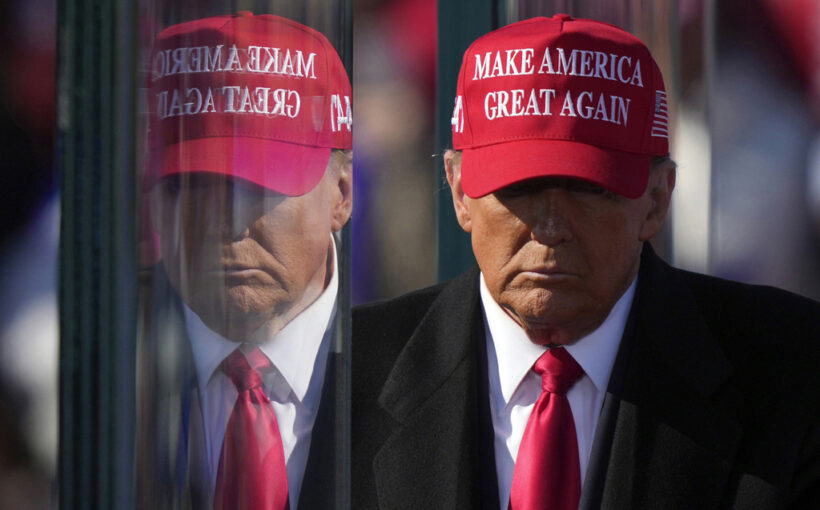
There is no sugarcoating it: Donald Trump’s victory on Tuesday is a major setback for many antipoverty policies. With a Republican majority in the Senate (and likely in the House as well), there’s little doubt that spending cuts will be up for debate, and tried-and-failed ideas like imposing work requirements on welfare recipients will be back on the table.
Throughout the campaign, Trump promised that he wouldn’t cut Social Security. But his proposed changes to the program — like cutting taxes on Social Security benefits — would likely result in reducing benefits sooner rather than later. Other tax-cutting ideas, like his “No Tax on Tips” plan, would likely be a bigger payoff for big businesses than for workers because it could push wages down.
None of that means, however, that there’s only room for pessimism. As my colleague Dylan Matthews wrote, Trump’s first term showed that any major cuts would have a hard time getting passed, even with a Republican majority. And there’s also reason to believe that some programs could even get passed, like some version of an expanded child tax credit that has had bipartisan support in the past. (Vice President-elect JD Vance, for example, has supported expanding the child tax credit.)
The election results on Tuesday also showed signs of hope — a roadmap for what an antipoverty agenda could look like under a second Trump presidency. Because while Democrats lost the presidential race, voters didn’t necessarily reject their policies. In various states, voters supported progressive priorities through ballot measures, including minimum wage hikes, paid sick leave, and expanded labor rights. If Democrats want to have a productive four years under Trump, there’s a lot they can do at the state level — if not in the legislatures, then at the ballot box.
One positive election outcome? Voters raised the minimum wage.
In five states, voters got to have a say in their minimum wage laws.
In Missouri, for example, voters passed a minimum wage hike, raising it from $12.30 per hour to $15 by 2026. The new law pegs the minimum wage to inflation, which means that workers don’t have to wait for another law to pass to keep up with rising costs. More than 562,000 workers will see their wages rise as a result of the law, according to the Missouri Budget Project.
Alaskans also voted on raising the minimum wage to $15 per hour, up from $11.73, and the measure is on track to pass. It would increase earnings for nearly 10 percent of the workforce, according to the Economic Policy Institute. In California, voters were asked to raise the state’s minimum wage to $18 per hour, but the results are still too close to call.
In Arizona, voters protected worker pay by overwhelmingly rejecting a measure that would have allowed employers to reduce base wages for tipped workers. In Massachusetts, however, there was a different story. Voters didn’t approve a ballot measure that would have supported tipped workers. Tipped workers in the state are now paid $6.75 per hour, but had the measure passed, they would have eventually been paid the standard minimum wage, which now sits at $15.
The benefits of a higher minimum wage are clear: Workers at the bottom automatically see their incomes rise. But efforts to raise the minimum wage often face opposition because business interests argue that they would result in job losses or increased prices. In the case of Massachusetts, the proposal was strongly opposed by restaurant lobbying groups.
The evidence points to a different reality. In states that have increased the minimum wage, there was little to no impact on the number of jobs. Some studies have even shown that a hike in the minimum wage can also lead to higher employment in certain labor markets in part because they attract more workers. And states that have gotten rid of subminimum wages have seen lower poverty rates among tipped workers than states that haven’t.
Recent research from the Center on Wage and Employment Dynamics at the University of California, Berkeley, found that a higher minimum wage did not necessarily lead to significantly higher prices. After California raised the minimum wage for fast food workers up to $20 per hour earlier this year, employment remained stable and prices didn’t dramatically change. According to the study, popular menu items were about 3.7 percent more expensive — about a 15-cent increase for a $4 hamburger.
The next four years will be about the small wins
It’s worth noting that during Trump’s first term, when Democrats had control of the House, the former president signed some major antipoverty measures into law, including rental assistance, boosted unemployment benefits, and stimulus checks. Of course, that was prompted by a pandemic, a global disaster that we hopefully won’t see a repeat of anytime soon. So that kind of policy at the federal level is highly unlikely to pass in the next four years.
That’s why Democratic lawmakers and antipoverty advocates have to focus on the state level to deliver meaningful improvements to people’s lives. The ballot measures on Tuesday, some of which also included provisions that require employers to offer their workers paid sick leave, showed that the public has an appetite for policies that would reduce poverty. And while voters in Massachusetts rejected abolishing the subminimum wage for tipped workers, they passed a ballot measure that allows rideshare drivers to unionize.
Democrats should capitalize on that because it can genuinely make a big difference. Even though the federal minimum wage, which is $7.25 per hour, hasn’t changed in 15 years, at least 30 states and Washington, DC, have implemented a higher minimum wage.
Sometimes, major breakthroughs don’t come from one major legislative overhaul from Congress. They can also be a series of small wins. And we should take them wherever we can.



